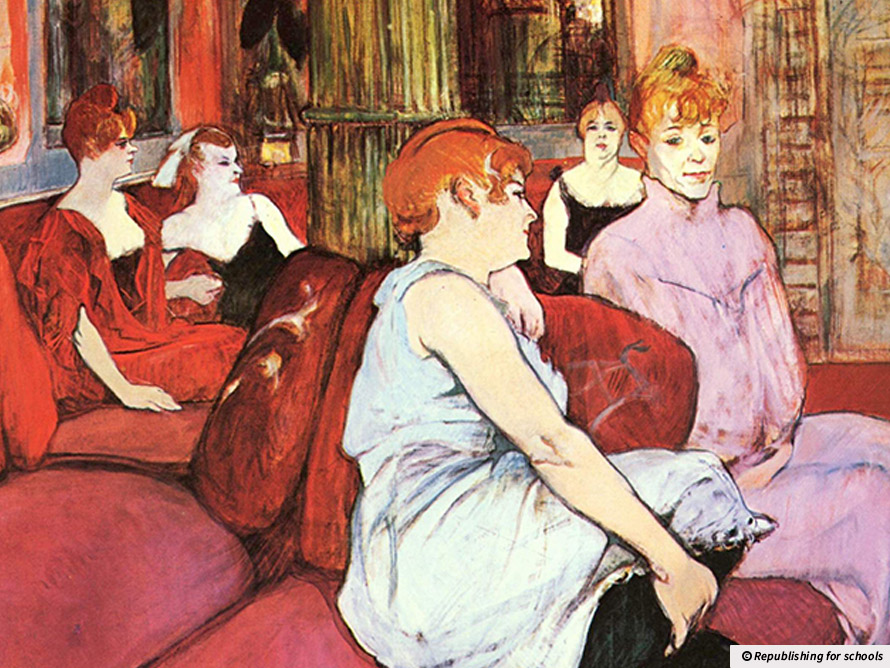Have we forgotten how to connect? Technology makes it easier than ever to communicate. But one expert thinks we need to relearn the essential skills of meaningful friendship.
Secrets of making better friends revealed
 Togetherness: The Salon de la Rue des Moulins, 1894: A study of friendship by Toulouse-Lautrec.
Togetherness: The Salon de la Rue des Moulins, 1894: A study of friendship by Toulouse-Lautrec. Glossary
Preoccupied - Interested; engaged.
Millennia - Thousands of years.
Epidemic - A widespread disease or infection.
Craft - Skill or art.
Virtuous - Having or showing high moral standards
Reciprocal - Mutual; from both sides.
Involuntary - Done against someone's will or without control.
